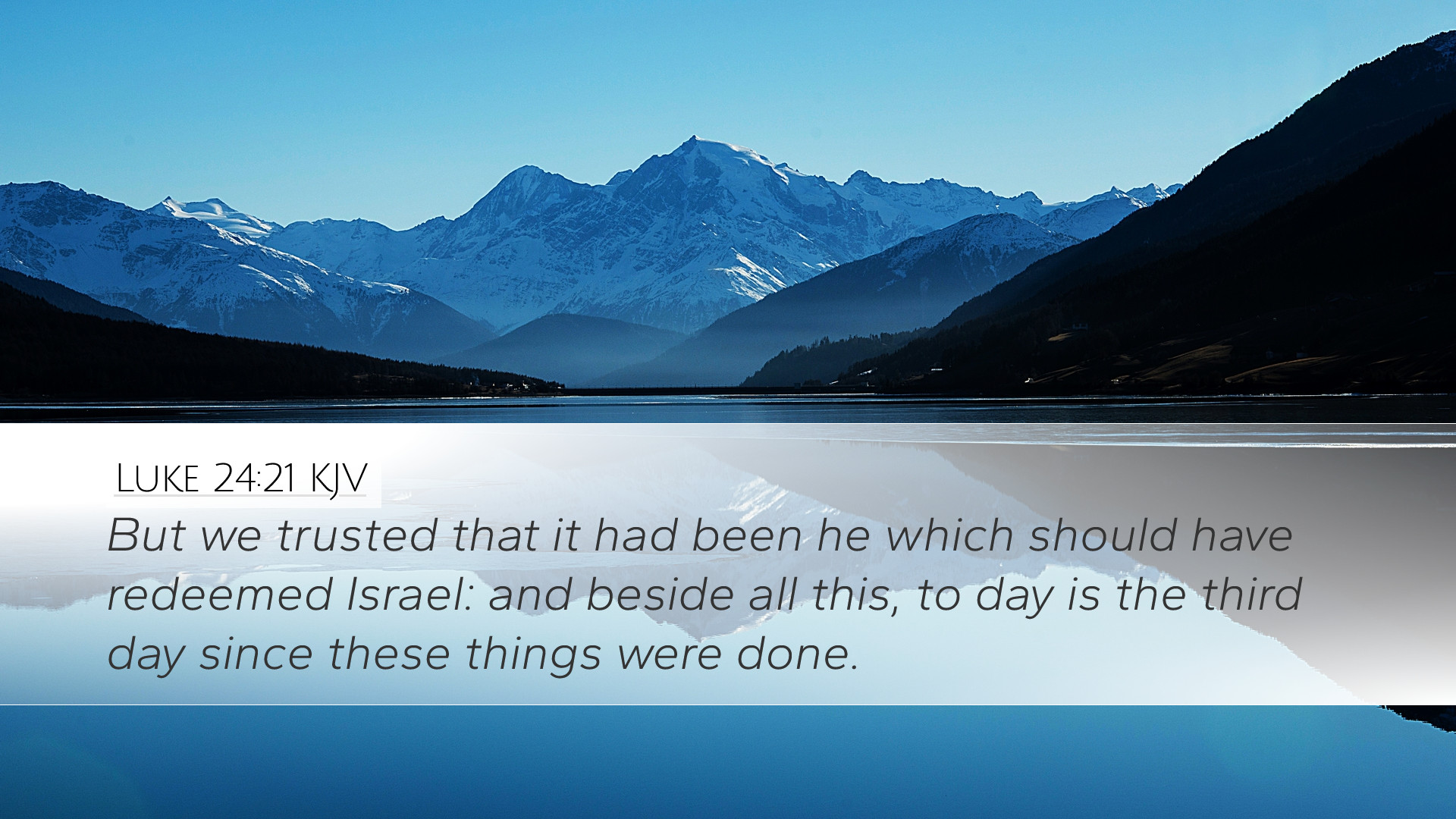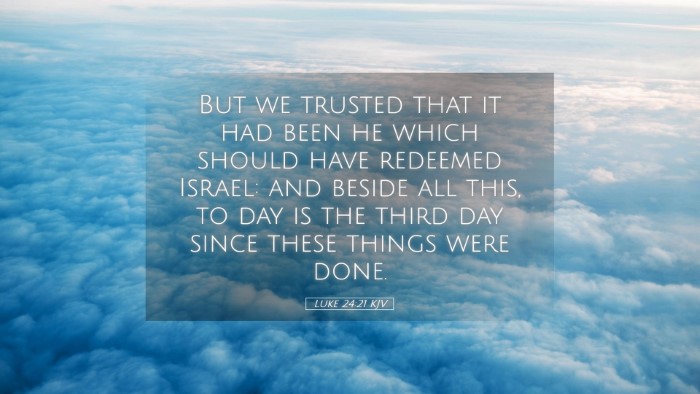Commentary on Luke 24:21
Verse Text: "But we had hoped that he was the one who was going to redeem Israel. And what is more, it is the third day since all this took place."
Overview
This verse captures a poignant moment of disappointment from the disciples following the crucifixion of Jesus Christ. Their hopes for redemption, both for themselves and for Israel, have been dashed. The emotive regret and despair reflect a deeper theological concern: the disciples had not fully comprehended the nature of Jesus’ mission and the fulfillment of prophecy that would result from his sacrifice.
The Disciples' Hope
The phrase "we had hoped" signifies the intensity of their dashed expectations. As noted by Matthew Henry, “hope is a powerful and often painful emotion; it can be a source of deep joy when fulfilled, and profound sorrow when unfulfilled.” This emotional starkness frames the disciples' struggle to reconcile their messianic ambitions with the reality of Jesus' death.
Understanding Redemption
- Albert Barnes highlights that the term "redeem" implies not just a spiritual deliverance but also a political one. The disciples were anticipating a Messiah who would liberate Israel from Roman oppression, not one who would die as a criminal.
- Furthermore, Adam Clarke argues that their mistaken perceptions of what redemption entailed signify a larger misunderstanding of God's plans. The disciples looked to a kingly redeemer rather than a suffering servant.
The Third Day
The mention of “the third day” carries significant theological implications. Jesus had foretold His resurrection (Matthew 16:21, Mark 8:31, Luke 9:22), yet the disciples remained clouded in disbelief.
Prophetic Fulfillment
Matthew Henry points out that the Old Testament is replete with foreshadowing of the Messiah's sufferings and subsequent glory. The disciples’ failure to grasp these implications is emblematic of a broader human limitation - seeing only what we desire to see and misunderstanding divine promises.
Lessons for Pastors and Theologians
This verse serves as a springboard for engagement with the themes of hope and disappointment in ministry. Here are several implications:
- The Nature of Hope: It is crucial for pastors to help their congregations navigate the complexities of hope, particularly when expectations are met with unforeseen trials.
- The Role of Understanding: Teaching the fullness of Scripture helps believers grasp the complete view of redemption, avoiding pitfalls of unmet expectations based on cultural notions of success.
- Theological Reflection: This text encourages scholars to ponder the relationship between divine timing and human expectation—how God often works outside of human understanding.
Concluding Reflections
In conclusion, Luke 24:21 encapsulates the struggle of the disciples with their unmet expectations of the Messiah. Through the lens of public domain commentaries, we glean critical insights into the nature of hope, redemption, and the promise of resurrection. As believers today reflect upon this verse, they are reminded of the hope that transcends disappointment, inviting a deeper understanding of their faith journey. It is in this space of hope amid despair that true understanding of resurrection faith can be found, a theme that resonates deeply throughout Christian theology.


